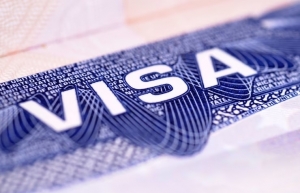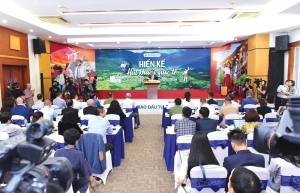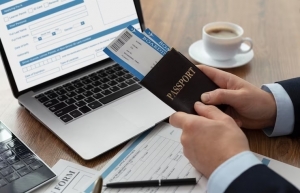Difficulties on way out for Vietnam’s Visa policy
 |
| Difficulties on way out for Vietnam’s Visa policy |
The short duration of stay, along with complicated factors related to the visa application procedure, have been causing headaches for foreign tourists. However, the Minister of Public Security has submitted to the National Assembly a draft amendment and supplement to a number of articles of the Law on Entry, Exit, Transit, and Residence of Foreigners in Vietnam at the end of May.
The new draft has proposed to increase the duration of e-visas from no more than 30 days to a maximum of three months, valid for one time or multiple times. At the same time, the scope of e-visa issuance would be expanded to more than 80 countries and temporary residence would rise from 15 to 45 days.
The Ministry of Culture, Sports and Tourism also proposed to consider supplementing the pilot regulation of issuing visas at border gates for international tourists. This proposal also requires a clearer regulation of the extension of visa-free entry for citizens of countries applying the unilateral visa-free entry policy to five years so that agencies and businesses can build appropriate plans to exploit the market.
According to Assoc. Prof. Dr. Pham Hong Long, Dean of the Faculty of Tourism at Vietnam National University in Hanoi, visa policy will determine visitors’ assessment of the attractiveness of the destination involved. “As a more open visa policy is passed, Vietnam promises to attract more international visitors with longer stays. Vietnam’s tourism will achieve dual benefits when both increasing the number of visitors and increasing visitor spending,” Long said.
Long suggested that the issuance of e-visas should be extended to all countries. On-site visa procedures also need to be more convenient and easier for tourists, especially from markets with high spending levels such as Scandinavia and Italy.
Visa policy is being utilised by many countries in the region to create effective tourism leverage. Singapore is visa-free for citizens of 162 countries, and foreign visitors can stay for up to 90 days with the option to extend by up to another 90 days. Recently, Singapore also announced an elite 5-year visa policy.
Meanwhile, Thailand has made several policy changes related to stay for foreigners. The total number of international visitors to Thailand in 2022 reached around 11.15 million, an increase of 26-fold compared to 2021.
According to the Tourism Authority of Thailand, the impressive result comes from the policy of extending the visa-free period for travellers from 64 countries from 30 to 45 days and increasing the length of stay for visa holders from 15 to 30 days.
In contrast, the number of countries that are granted e-visas in Vietnam is still low, the e-visa period is short, and has not attracted many foreigners, especially groups who want to stay for a long time.
Pham Ha, CEO of Lux Group, a unit specialising in exploiting resort yacht products, said that tourism businesses here and foreign partners are keenly awaiting visa modifications. “The immediate change in visa policy will affect markets near and around Asia. To be able to attract faraway markets with high spending power, Vietnam also needs to have convenient flight routes and good infrastructure for guests to come easily and have many experiences,” said Ha.
 | More flexible visa policy finally on cards after multiple gripes Vietnam is gearing up efforts to ease its visa requirements to facilitate travel for citizens from more countries. |
 | Visa upgrade at heart of fresh approach to tourism Vietnam’s tourism industry is expected to surpass its goal of welcoming eight million foreign visitors this year, if visa policies are updated and length of stay options adjusted. |
 | Business visa procedure frustration rumbles on Inflexibility in the business visa policy is a major barrier to many foreign-invested enterprises operating their factories in Vietnam. |
What the stars mean:
★ Poor ★ ★ Promising ★★★ Good ★★★★ Very good ★★★★★ Exceptional
Related Contents
Latest News
More News
- Manila becomes a new check-in destination for Vietnamese youth (December 11, 2025 | 18:07)
- Vietjet launches mega year-end ticket promotion (December 10, 2025 | 11:33)
- Dalat leads Vietnam’s 2025 search trends (December 09, 2025 | 13:44)
- Vietnam welcomes record wave of international visitors (December 09, 2025 | 13:43)
- Vietjet launches daily Manila flights to celebrate year-end festive peak season (December 05, 2025 | 13:47)
- The destinations powering Vietnam’s festive season travel demand (December 04, 2025 | 18:33)
- Vietnam named among the world’s most exciting winter destinations (December 04, 2025 | 15:10)
- Phu Tho emerges as northern Vietnam’s new tourism hub (December 01, 2025 | 17:00)
- Vietjet completes Airbus A320/A321 updates ahead of deadline (December 01, 2025 | 09:49)
- Vietjet resumes Con Dao flights from early December (November 28, 2025 | 15:24)

 Tag:
Tag:



















 Mobile Version
Mobile Version